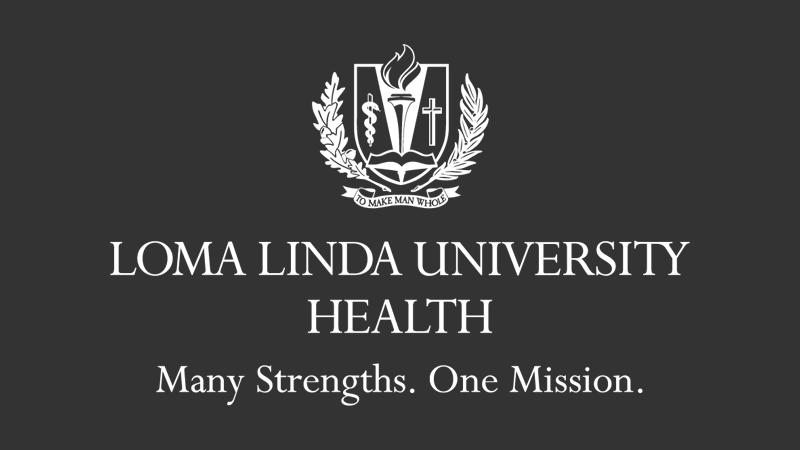
Pomegranates: Prevent Alzheimer's
Drinking a daily glass of pomegranate juice can halve the build-up of harmful proteins linked to Alzheimer’s disease. Patricia Kelikani
Dr. Mark Reeves, Surgical Oncologist (Co-host): Many of us have had a loved one with Alzheimer’s. In fact, one out of eight older adults has Alzheimer's disease, making it the sixth leading cause of death in the United States.
Patricia Kelikani, Health Journalist (Co-host): But there’s new evidence showing how we can delay the onset of this disease with pomegranate juice. First, let’s take a look at what causes this disease.
DR. REEVES: Most Scientists believe that Alzheimer’s is the result of the build up of plaque in the brain called Beta Amyloid. We all have this protein in our brains floating around in a soluble state, but when there’s too much, it can clump together and form this plaque that damages the neurons in the brain. Neurons are the brain cells that act like the computers of our body.
Dr. Richard Hartman, Loma Linda University Professor of Psychology: “Aging, genetics, poor diet, brain injury, lack of exercise can all accelerate this process. And when this happens the neurons in the brain’s areas that are involved in learning and memory, particularly the hippocampus to get damaged and they start to die off.”
KELIKANI: So where do pomegranates come in? Well, one of Dr. Hartman’s first studies with this fruit involved transgenic mice predisposed to Alzheimer’s like symptoms. After six months of drinking pomegranate juice, the mice not only performed learning and memory tests better than the control group, but they had 50 percent less plaque in their brains. With these results, Dr. Hartman and his team then identified individuals prior to heart surgery since it’s common for these patients to have memory deficits following the procedure.
The mice not only performed learning and memory tests better than the control group, but they had 50 percent less plaque in their brains.
Patricia Kelikani
DR. REEVES: They gave half the patients pomegranate pills one week before surgery and six weeks after. Not only did the individuals who took the pomegranate pills have no memory loss, but their memory actually improved. On the other hand, the patients who did not receive the pomegranate pills had memory deficits as expected.
DR. HARTMAN: “We even have some evidence now that it stimulates the growth of new neurons in the brain. I don’t want to make the case that this is a cure for Alzheimer’s disease or a cure for memory loss. It’s part of the whole, you know, healthy lifestyle.”
KELIKANI: Pomegranates are loaded with anti-inflammatory and anti-oxidant compounds called polyphenols, which are chemicals found in plants that work to protect the cells in our bodies from being damaged. So what are some simple tips you can do on a daily basis to reduce your risk for Alzheimers? You can drink an eight ounce glass of pomegranate juice, eat pomegranate seeds, or take a pomegranate pill.
DR. REEVES: But it’s not limited to only pomegranates. Other foods with bright or dark colors like blueberries and raspberries, and even the curry spice have similar benefits.
DR. HARTMAN: So my advice would be to eat a broad variety of these foods. Get lots of exercise and that’s a great way to kind of cover your bases.
KELIKANI: Some creative ways to incorporate this into your diet is to sprinkle the seeds on your salad, stir it in yogurt, or add pomegranate juice to a smoothie. There’s your tip for the day on how you can live healthier, longer.
Researcher Biography
Rich Hartman, PhD is professor of experimental psychology and director the Behavioral Neuroscience Lab at Loma Linda University. He graduated from Missouri State University in 1993 with a Bachelor of Science in experimental psychology. Hartman enrolled in the Behavior, Brain and Cognition program at Washington University in St. Louis, where he studied rodent behavior and neurodegeneration under behavioral expert Dave Wozniak in the lab of the renowned John Olney, medical doctor and a professor of psychiatry, pathology, and immunology at the Washington University School of Medicine.
Hartman defended his PhD dissertation on September 11, 2001, and then trained for another four years as a post-doctorate in the lab of Alzheimer's disease guru Dave Holtzman. While with Holtzman, he worked with a number of transgenic and knockout mouse models of Alzheimer's disease and learned biochemical and histological techniques for assessing biomarkers of neuropathology.
Hartman has published papers characterizing brain injury resulting from early drug exposure, global ischemia, intracerebral hemorrhage, impact trauma, as well as characterizing a number of transgenic mouse lines and neuroprotective strategies.
Hartman’s lab is exploring the interface between acute brain injury (e.g., TBI, stroke, radiation,) subsequent neurodegeneration (e.g., Alzheimer’s neuropathology) and in dissecting the mechanisms by which plant-based compounds (phytochemicals) can influence the brain’s functions under these conditions. His laboratory team has shown that traumatic brain injury can accelerate the development of Alzheimer’s-like neuropathology in transgenic mice and rats, and that preventing accumulation of amyloid plaques in their brains with a monoclonal antibody or pomegranate phytochemicals can prevent the age-related decline in cognition seen in these animals. Interestingly, pomegranate supplementation reduced soluble amyloid-β and plaques by ~50% in the brains of transgenic mice. More importantly, they showed that dietary supplementation with pomegranates improved learning and memory performance in the mice and in humans after heart surgery.
Other experimental data from the lab demonstrates that pomegranate supplementation protected against depression-like behaviors (learned helplessness) induced by radiation exposure and improved swim speed in transgenic mice. Presumably, these effects are mediated by phytochemicals like polyphenols (including the phenolic acids and flavonoids), which have been shown to have antioxidant properties and to suppress inflammatory and other pathways. Hartman’s lab also functions as the Neurobehavioral Core Facility for Loma Linda University’s Hemorrhagic Stroke Center.
Additional Related Articles
- Pomegranate Supplementation Improves Affective and Motor Behavior in Mice After Radiation Exposure, Vol 2013: Article ID 940830, Hindawi Publishing Corporation, Copyright© 2013
- Pomegranate Juice Decreases Amyloid Load and Improves Behavior in a Mouse Modell of Alzheimer's Disease, Neurobiology of Disease 24: 506-515, Elsevier, Copyright© 2006
- Pomegranate Supplementation Protects Against Memory Dysfunction After Heart Surgery: A Pilot Study, Vol 2013: Article ID 932401, Hindawi Publishing Corporation, Copyright© 2013




